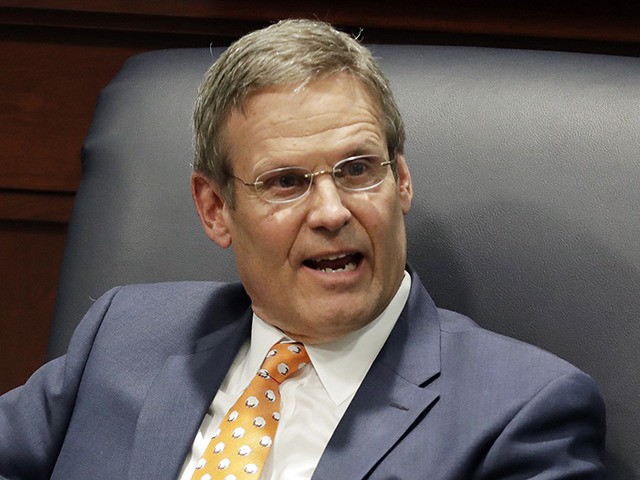The Tennessee Department of Education has withdrawn a $1 million effort to perform “child wellbeing checks” during school shutdowns after parental uproar.
The program received quick and sharp condemnation from members of the Tennessee legislature and parents across the state as a vehicle of government intrusion and overreach.
“The Department of Education has withdrawn an optional toolkit that helps guide public school districts in addressing the needs of vulnerable students who are facing extended time away from the classroom,” spokesman Gillum Ferguson told the Center Square. “There is not a program or any sort of check-in being administered. This optional guidance is being re-written to make this clear.”
Ferguson added the child wellbeing initiative is not a program intended for homeschoolers or independent schools.
The goal of the original program, a creation of a 38-member Child Wellbeing Task Force, was for every child in the state, from age birth to 18, to receive a “well-being check” via email, phone call, or home visit.
“The Child Wellbeing Task Force will work to ensure that the needs of Tennessee children are met during and after extended periods away from school, and to empower local communities to meaningfully engage in ways that support child wellbeing,” said Commissioner Penny Schwinn, who was charged with developing the initiative by Gov. Bill Lee (R).
The Center Square reported:
According to original guidelines, a well-being check could include an email, phone call or a home visit from a well-being liaison. Well-being liaisons would need a parent’s permission to speak with a child, and if a parent refused, the refusal would be noted in a database. Local education agencies would implement the initiative and report aggregated data back to the state Child Wellbeing Task Force.
On August 12, Tennessee state Rep. Scott Cepicky (R) posted to Facebook:
Today our education committee was informed of this well-being program. We firmly oppose this type of data collection and overreach by the state government. We are working right now to get a repeal of this program. This mandate from the government coming in and talking to our children is totally unacceptable and I will work to oppose any form of this program being forced on our children and families. If you are asked to participate in this program please let me know.
This has just been released from the Department of Education. To all concerned citizens in regards to the Well being…
Posted by State Representative Scott Cepicky on Friday, August 14, 2020
On Thursday, Cepicky followed up with the announcement the original “Child Wellbeing” check initiative had been withdrawn:
To all concerned citizens in regards to the Well being checks program. Thank you all for your steadfastness in getting this program reversed. The protection of your privacy and liberty are my major focus. As always, we will stay on guard and be vigilant when the new information is rolled out.
Some state and national health leaders have encouraged a return to in-person learning at schools this fall by observing that many child abuse reports are initiated by school personnel and that some children from low-income families receive meals at school.
“The danger to our children is not being in school,” Department of Health and Human Services Secretary Alex Azar told Fox News Channel’s Fox News @ Night in July:
The danger to their health is not being in school. Our kids get health care, they get mental health services, they — many of them get nutrition services, they get — mandatory reporting of child and sex abuse from school officials comes there. That’s in addition to the social, physical, and intellectual development these children need from being in a physical education environment. The health risk to them of not being in school are — definitely outweigh the risks of being back at school.
Kerry McDonald, a senior education fellow at the Foundation for Economic Education (FEE), wrote Monday that as remote learning becomes more commonplace, school and state officials “are clinging to control however they can”:
From sending Child Protective Services (CPS) agents to investigate charges of neglect in homes where children missed Zoom classes last spring, to proposing “child wellbeing checks” in homes this fall, government schools and related agencies are panicking over parents having increased influence over their children’s care and education during the pandemic.
McDonald noted a 2018 report by the Hechinger Report and HuffPost, that revealed “schools increasingly use child protective services as a ‘weapon against parents’ — especially parents who lack the means to fight back.”
With more school districts adopting virtual or remote learning models due to continued fears about the coronavirus, she expects more parents of children who miss their online classes will be the subjects of criminal investigations into child neglect, and cited the Tennessee “child wellbeing checks.”
“As parents pull away from state-controlled education and assume greater responsibility for their children’s learning, the state will hasten efforts to maintain and expand its authority through its monopoly on the use of force,” McDonald added. “From virtual truancy claims and increased CPS investigations that disproportionately target poor parents and families of color, to calls for child wellbeing checks and more homeschooling regulations, the state will not willingly yield control of children’s education to parents.”
Correction: At publication this article erroneously stated Kerry McDonald works for the Foundation for Excellence in Education; it has been updated to reflect he works for the Foundation for Economic Education.

COMMENTS
Please let us know if you're having issues with commenting.